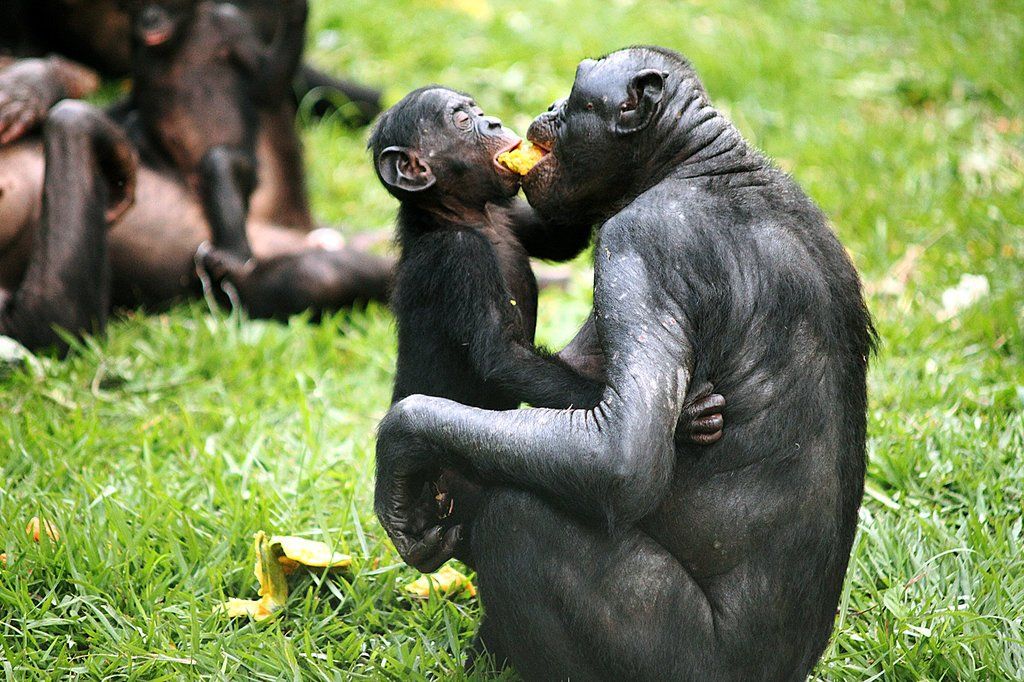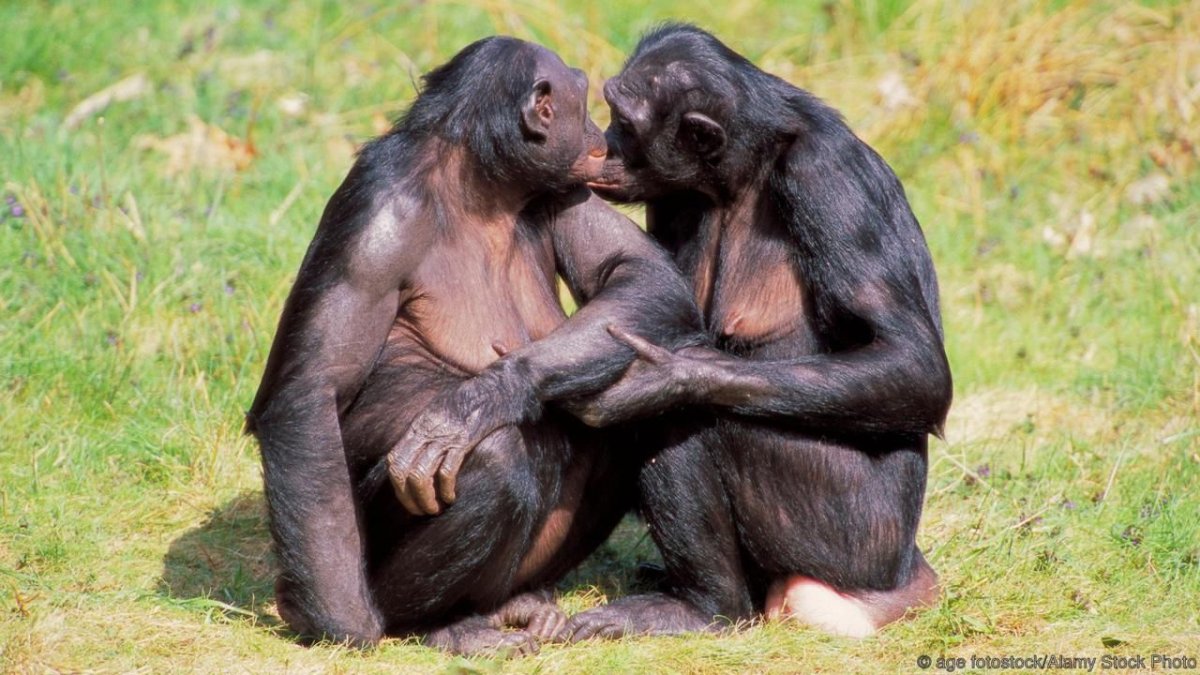
A new study of bonobos has observed a previously unrecognized trait among these apes: They are kind to strangers.
The reputation of bonobos as friendly and warmhearted creatures (plus enthusiastic orgy participants) precedes them, but in a new series of experiments they really outdid themselves. Voluntarily, without being prompted, bonobos helped other bonobos that they didn't know to get food—even when the new bonobo didn't ask.
The implications are pretty extraordinary. We've previously assumed that potential for xenophilia, as this behavior is called (as opposed to xenophobia, a fear of people from other countries, which we are also familiar with) is an ability unique to humans. This research, published today in the journal Nature, shows it's not just us after all.
"One of the most puzzling human behaviors to understand is the origin of altruism," first author Jingzhi Tane explained to Newsweek over email. "There is this long-held belief that 1) humans helping strangers must be altruistic and 2) it is unique to humans (and perhaps a result of human language/culture/norms)."

The team studied wild-born bonobos (most of them orphans, in case you have not found the whole situation emotional enough already) of the Lola Ya Bonobo sanctuary in the Democratic Republic of Congo. In one room they attached fruit to a dangling rope that could be released by pulling a pin in a separate room. They found that bonobos in the room with the pin, upon seeing an unfamiliar bonobo enter the room with the fruit, would release it for the new bonobo even though they themselves got no extra food by doing so. (No bonobos were deprived of food or anything else during the course of the study.)
The bonobos' behavior shows that human-like culture isn't a prerequisite for being kind to strangers. It also means that being kind to strangers isn't necessarily always about altruism; sometimes it might be about mutualism. Ever gotten stuck thinking about how maybe there's no truly selfless behavior because being nice to people makes you feel better, too? It's a bit like that. Bonobos know that, like your grandma always said, a stranger is just a friend you haven't met yet.
According to what's called the first impression hypothesis, xenophilia arises in a group of individuals when the benefits of reaching out to strangers outweigh the costs. The behavior the researchers observed makes for a very strong case that the first impression hypothesis applies to bonobos, and that they meet the definition of prosociality.
The researchers also found that the bonobos were susceptible to what we all know to be one of the most contagious things you can catch from either friends or strangers: yawning. The fact that, like humans, bonobos are able to catch the yawns from other bonobos, even ones they don't know, shows that their xenophilia isn't always a conscious choice—it's an automatic, involuntary response, which means xenophilia is just part of their nature. The methodology is an effective means of demonstrating that humans aren't alone in this; even if not always completely fool-proof.
"At the beginning, I was trying to yawn in front of them and hoped that they would yawn contagiously with me," Tan wrote. "Some just thought, 'This guy is funny, and I am going to make funny faces back!'"
Uncommon Knowledge
Newsweek is committed to challenging conventional wisdom and finding connections in the search for common ground.
Newsweek is committed to challenging conventional wisdom and finding connections in the search for common ground.
About the writer
Kastalia Medrano is a Manhattan-based journalist whose writing has appeared at outlets like Pacific Standard, VICE, National Geographic, the Paris Review Daily, ... Read more
To read how Newsweek uses AI as a newsroom tool, Click here.








